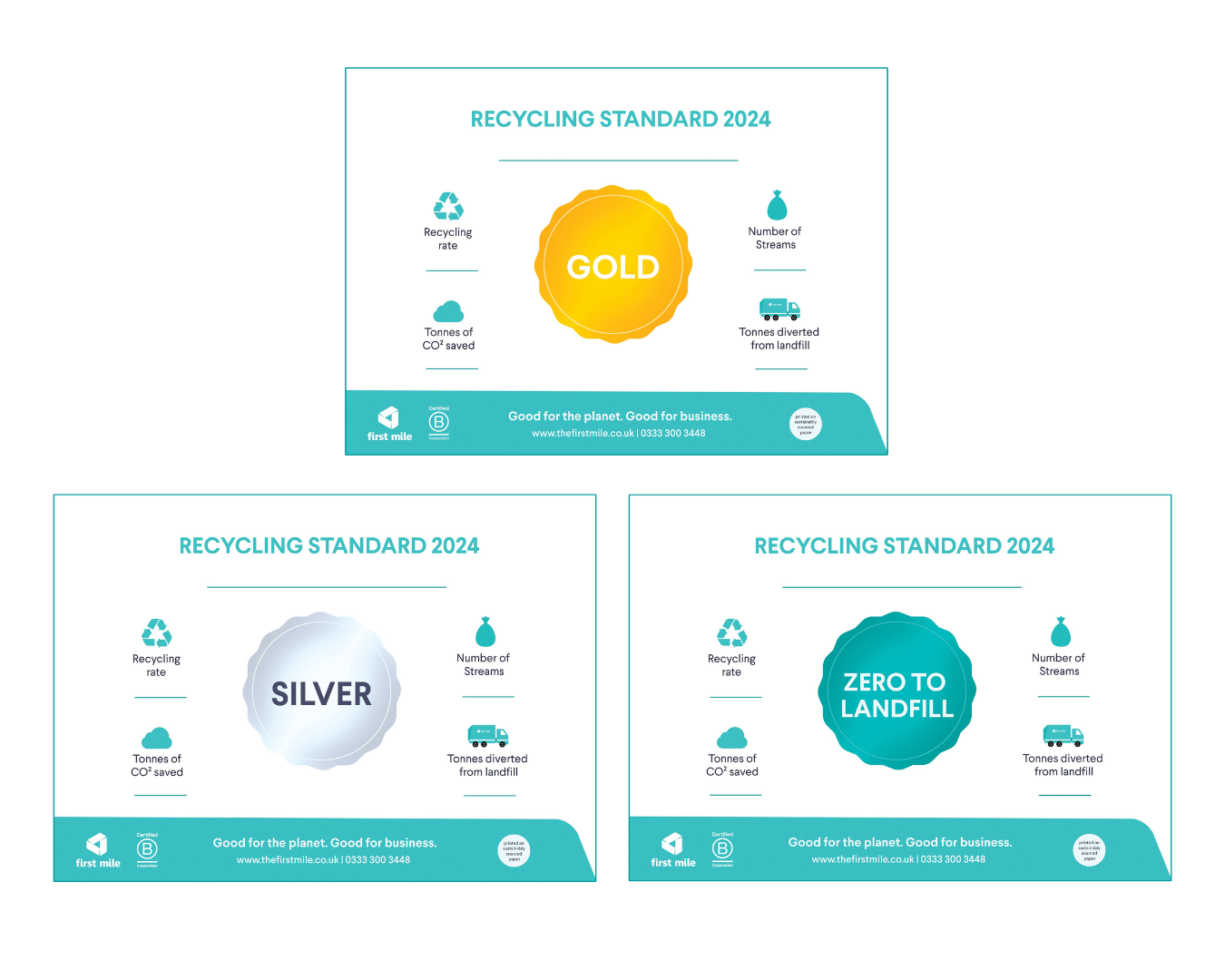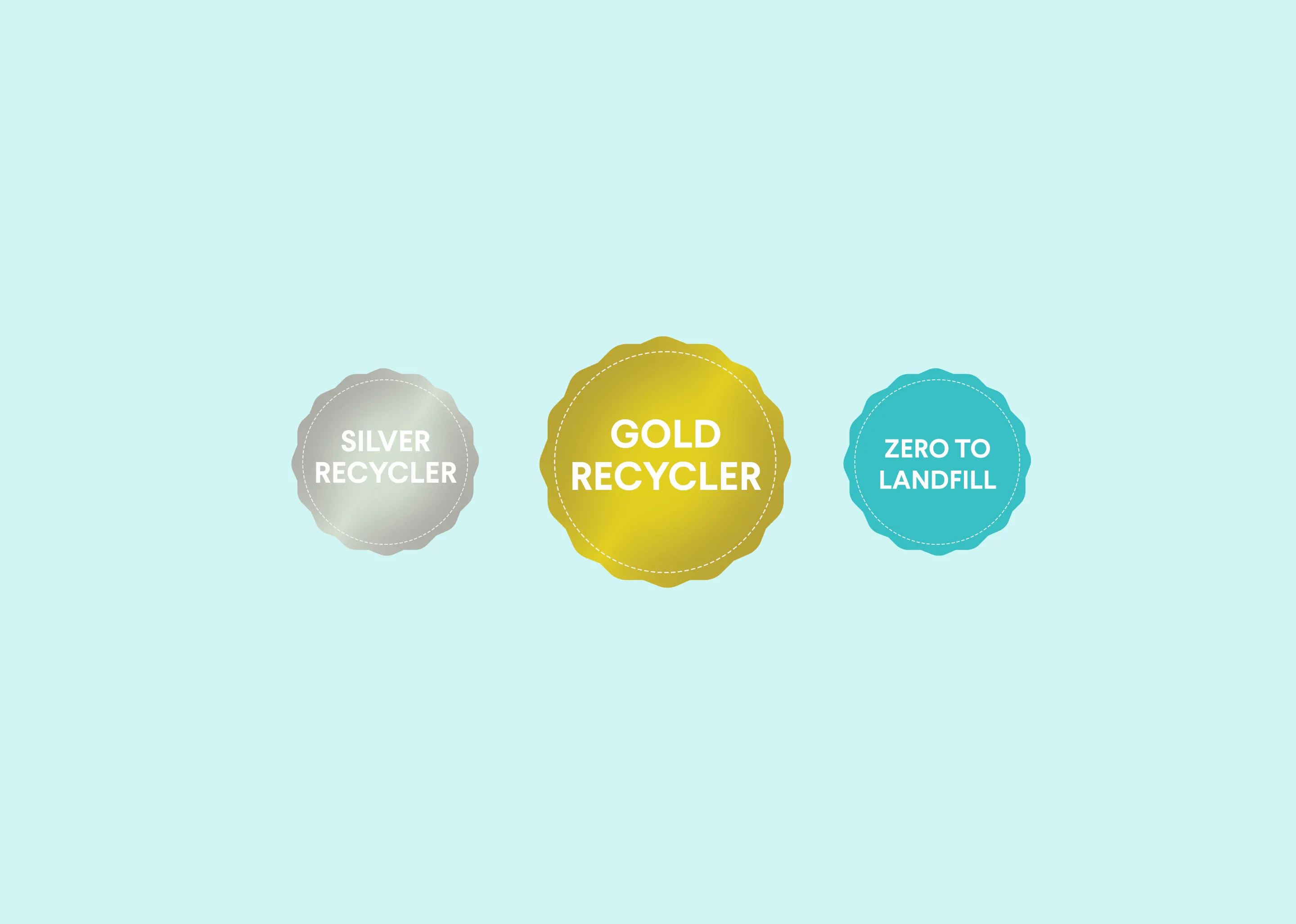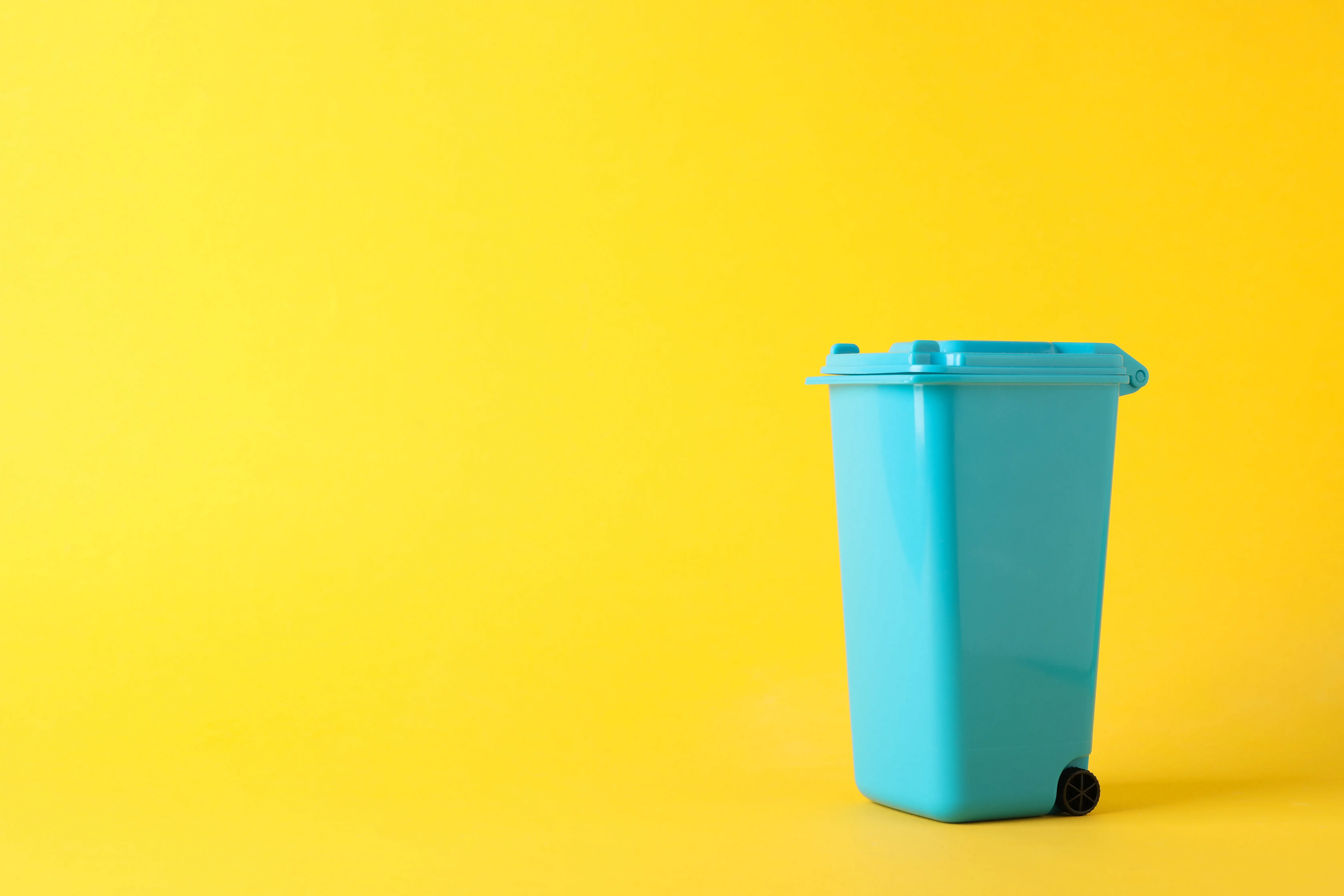First Mile Recycling Standard explained
Each year we reward our customers with a certificate with a Recycling Standard to celebrate their recycling efforts for the previous year.
Depending on their recycling rate and the number and type of services they have with us, customers are awarded either Gold, Silver, or Zero to Landfill Recycling Standard.
Customers can download their certificate as a PDF and can also embed data onto their website via an online widget.

How is the Recycling Standard calculated?
It's based on the total capacity of the recycling services ordered in 2024, and so may not precisely match the recycling rate on customer monthly reports.
The Recycling Standard is the recycling rate of a business as a percentage of the total waste disposed with First Mile. For Gold and Silver, this also includes the number of recycling services set up.
Gold: 80%+ recycling rate AND 4 or more services, or 3 or more services if you have food recycling (one of these services must be general waste)
Silver: 50%+ recycling rate AND 2 services
Zero to Landfill: Up to 49% recycling rate
What do the certificates show?
Recycling rate: The amount of material recycled versus what’s thrown away. We calculate this as a percentage of the total amount of waste disposed from businesses by First Mile, and how much of that is recycled versus put into general waste.
Number of streams: This is the amount of services a business has set up. First Mile offer 28 recycling services to choose from. Find out more about setting up more services on our dedicated page
Tonnes of carbon avoided: For each material recycled, we calculate the energy and transport savings of re-manufacture compared to the production of virgin material, to show how much carbon has been avoided or offset through recycling.
Tonnes diverted to landfill: How much general waste collected was diverted from landfill. All of our general waste services are zero to landfill with any waste that can't be recycled instead sent to generate green energy.
Customer FAQs
What does carbon avoided mean?
Carbon avoided is the carbon emissions not produced due to the fact that recycling reduces the need for items made out of virgin materials.
We say this instead of carbon saved, which may suggest banking these emissions, so that they could be generated at a later date or offset against produced emissions – which isn't the case.
How do I find out more?
All of your recycling data can be found online via your widget page, which you will find in the email we sent you. You can also access and download your certificate from this page at any time.
For any other queries related to your 2024 Recycling Standard, get in touch here.
How can I share my achievement?
You can download your certificate from your widget page and print it to display it at your place of business.
In your email you'll also find a link to download social assets so you can share your achievement on your socials. Be sure to use the hashtag #2024RecyclingHero when you post so we can share them on First Mile socials.
Make 2025 your most sustainable year yet
First Mile are here to help you avoid even more carbon in 2025.
We offer the widest range of recycling services, providing tailor-fit solutions that suit your sector and business size; so you can save money, and stay ahead of changing legislation.
How can I get compliant for Simpler Recycling?
First Mile customers can get compliant for the changes by ensuring they have a Mixed Recycling, Food Recycling and General Waste collection set up.
Learn more about the legislation and speak to our team here.




